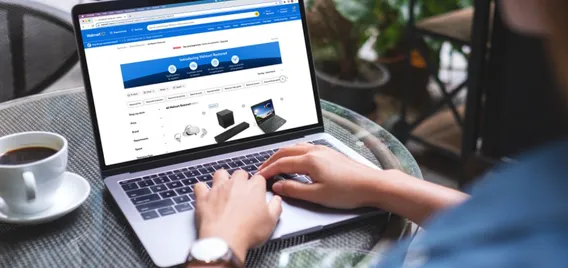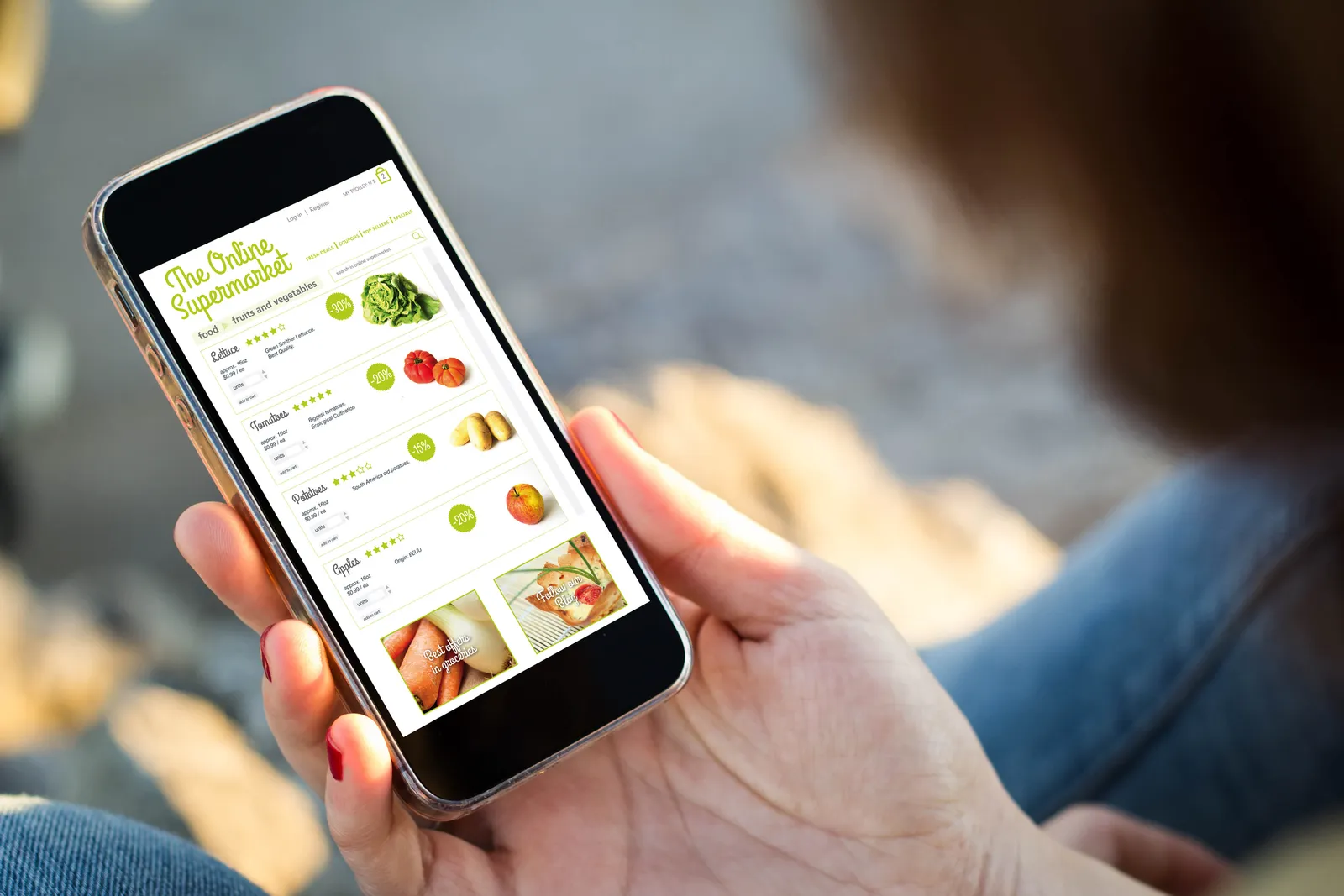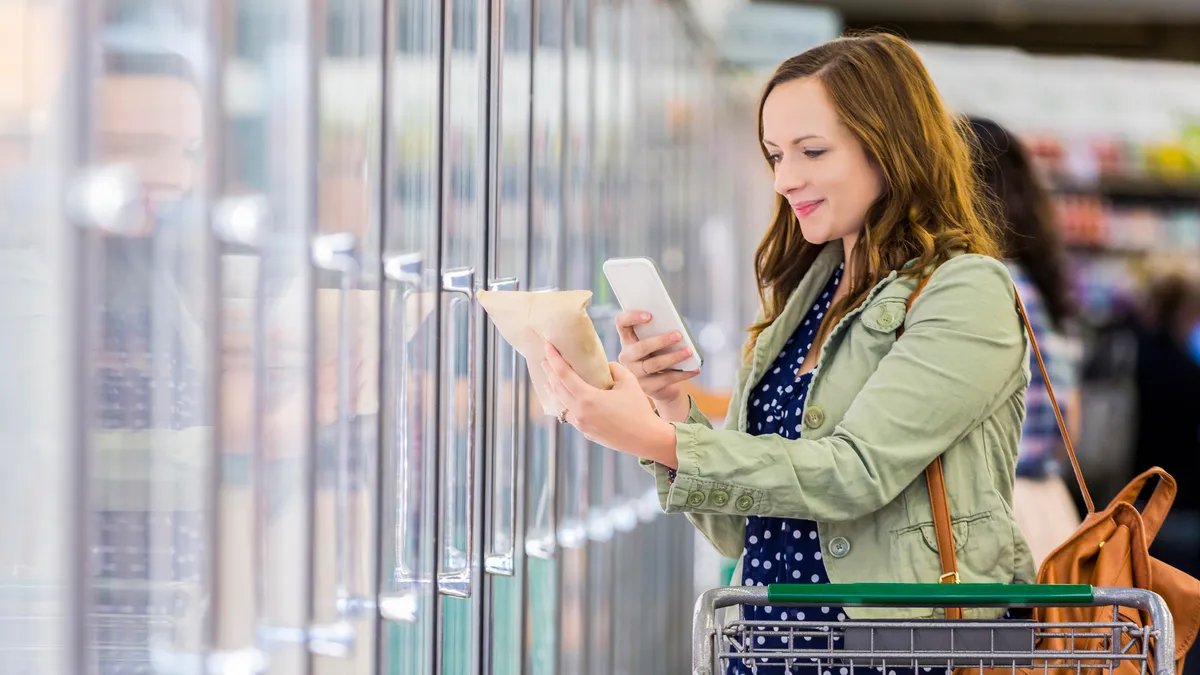The Friday Checkout is a weekly column providing more insight on the news, rounding up the announcements you may have missed and sharing what’s to come.
When Wegmans first tantalized shoppers with the ability to scan their own purchases and avoid checkout lines back in 2019, the uber-popular East Coast grocer exuded confidence about the system it had come up with to help people save time in its stores.
“Mobile-scan technology has been on our radar, but we know success only comes when the right technology is introduced at the right time, and that’s what we have with Wegmans SCAN,” the company said in a now-deleted press release issued when it began offering the service at a store in Rochester, New York, following a pilot with employees. The release is still available on the Internet Archive.
That bravado turned into a public relations disaster this week as Wegmans abruptly halted its scan-and-go service, sparking a torrent of online outrage from shoppers who had grown to love the option and were bitterly disappointed that it will no longer be available come this weekend.
In an apologetic but vague message to shoppers, Wegmans cast its decision to stop offering scan-and-go as an unavoidable consequence of what it said were “losses” that “prevent us from continuing to make it available in its current state.”
Wegmans declined to be more specific about how SCAN was hurting its business, but furious customers made it clear to the chain — which is known for drawing long lines of eager customers when it opens a new store — that it risked losing their loyalty by deciding to end the self-service program.
Findings from the Food Industry Association (FMI) suggest that Wegmans could be going against the grain by walking away from its SCAN service. More than half of the retailers that participated in a survey the trade group conducted this year now offer the technology, up from 26% in 2019. On the other hand, the rapid uptake of scan-and-go tech that took place early in the pandemic has quieted down, with relatively few grocers, particularly smaller ones, planning to add the service going forward, FMI noted.
Despite the flood of anger Wegmans drew by ending the service, shopper interest may not have met expectations. According to a report by TechCrunch, people have installed the SCAN app about 319,000 times, with about 45% of those installations taking place in 2020, when the pandemic spurred shoppers to avoid people in stores. By contrast, people have installed a self-scanning app offered by Sainsbury’s in the United Kingdom 3.6 million times, TechCrunch reported.
That raises the question: What will Wegmans do next to satisfy convenience-hungry grocery shoppers?

In case you missed it
Walmart changes its online substitutions pricing policy
The retailer will soon begin charging shoppers full price for product substitutions within their online orders, Insider reported earlier this week. Walmart previously charged shoppers the same list price as the original item they ordered.
A Walmart spokesperson told the publication that the move brings the company in line with standard industry practice and is part of a broader push to give shoppers more control over product substitutions, including approving or rejecting items and setting preferences ahead of time.
Substitutions are a major headache for shoppers, and Walmart has been trying to hone its suggested alternatives for shoppers. Last year, a company executive wrote that acceptance of substitutions increase to more than 95% since it started using deep learning artificial intelligence for online grocery orders
A big week for vertical farming
High-tech farming enterprises are scaling up and expanding their menus. Gotham Greens just announced $310 million in new funding as well as its first acquisition: Virginia-based hydroponic grower FresH2O. Meanwhile, Plenty, which has a partnership with Albertsons, plans to build what it claims will be the world’s largest indoor farm, capable of producing 20 million pounds of strawberries, leafy greens, tomatoes and other crops per year.
The moves suggest that vertical farming, which has been challenged by high operating costs in the past, is becoming a more viable business model while also expanding beyond its legacy focus on lettuces and microgreens. Bowery Farming, which supplies more than 1,100 grocery stores in the Northeast and Mid-Atlantic regions, announced this week it’s getting into salad kits.
Preschoolers weigh in on private label
Save A Lot has turned up the volume on its marketing efforts recently, particularly around its revamped private label products, which it’s pitting against many of the national brands it sells.
Now the discount grocer is bringing kids in on the act. Throughout this month, Save A Lot will post videos on TikTok and Instagram in which social media celebrity La’Ron Hines, known for his “Are You Smarter Than a Preschooler?” videos, will ask children about saving money and see if they can taste the difference between Save A Lot store brand products and their national brand competitors.

Number of the week: 67
That’s the percentage of consumers who prefer to use retailers’ mobile apps over their websites, according to a study by Incisiv. The industry insights firm expects digital sales to grow to 20% of overall sales by 2026.
What’s ahead
Groceryshop kicks off
The industry’s premier technology and innovation show gets underway on Monday, and the entire Grocery Dive team will be there, eager to mingle and hear about the latest industry developments. Make sure to say hi if you see us!
C-Store Dive newsletter launches Monday
Industry Dive’s latest publication, C-Store Dive, officially launches next week. Be sure to sign up for the daily newsletter.




















